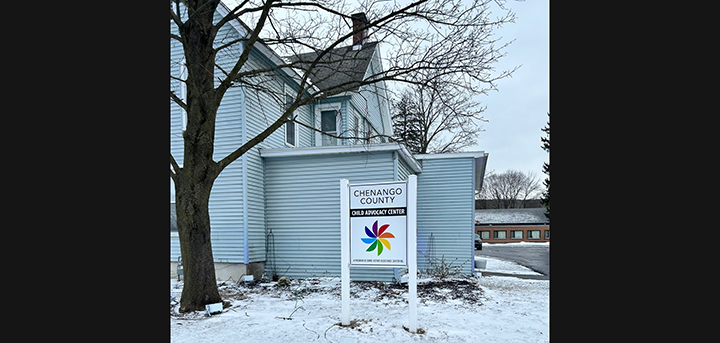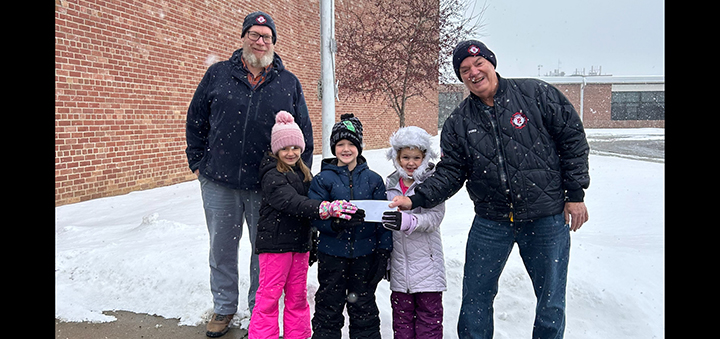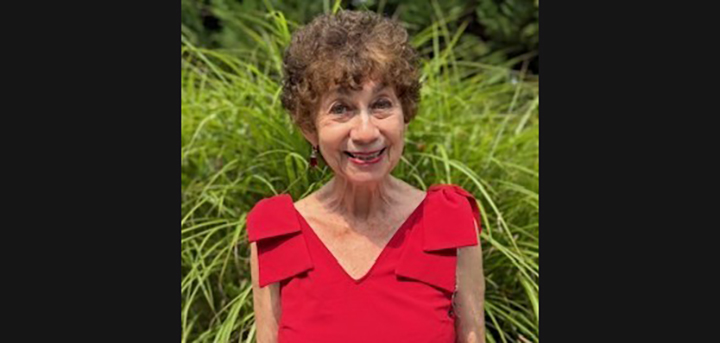Chenango Child Advocacy Center calls attention to human trafficking
The Chenango Child Advocacy Center (CAC) “Safe Harbour” program is focused on preventing human trafficking and exploitation and specifically targets youth between the ages of 8 to 21. Safe Harbour also connects young people to counseling services and mentorship programs, helping them regain control over their futures and break free from cycles of abuse and exploitation. (Submitted photo)
NORWICH - January is Human Trafficking Awareness Month. Human trafficking is a crime that involves a trafficker benefiting from the exploitation of another adult or child using force, coercion, and/or fraud. When a minor is exploited, it is considered trafficking regardless of force, coercion, or fraud.
Human trafficking happens everywhere. According to the New York Post's August 21, 2024 edition, due to issues on the US border, over 320,000 migrant children crossed the border without parents. These children who were released into the United States are now at risk of sex trafficking, forced labor, and other forms of exploitation. Likewise, human trafficking is happening right here within our community. For example, it could be a teenager selling photos of themselves on social media, or a parent using their child in exchange for a place to live, or wages being withheld from a migrant worker in exchange for basic need items.
Chenango Child Advocacy Center (CAC) has a program titled “Safe Harbour,” which is a comprehensive program focused on preventing trafficking and exploitation within the community. This program specifically targets youth between the ages of 8 to 21, providing them with compassionate, non-judgmental assistance. This support includes access to transportation, emergency housing, education opportunities, and legal advocacy, all tailored to meet their unique needs. Safe Harbour also connects young people to counseling services and mentorship programs, helping them regain control over their futures and break free from cycles of abuse and exploitation.
When we think about trafficking, we think about strangers taking a child right off of the street, but it is much more than that. The signs of human trafficking are often subtle, and traffickers go to great lengths to hide their activities, making it difficult for the public to recognize victims.
People who are trafficked can be of any age, race, gender, ethnicity, or socioeconomic status. Traffickers target a vulnerability and exploit it. Some of these vulnerabilities can include an unstable living situation or a lack of safety at home, having a substance use disorder, previous experience of domestic violence or other forms of abuse, being an undocumented immigrant, and facing poverty or financial hardship.
Many signs of trafficking can be hidden behind a facade of normalcy, and victims themselves may not be aware that they are being exploited. In many cases, they are manipulated into thinking that their situation is temporary or that they have no choice but to endure it.
Preventing human trafficking is a complex challenge. There are various strategies and actions that can help reduce the occurrence of trafficking and protect vulnerable individuals within our community. Educate yourself on the red flags of individuals that are vulnerable, learn about the local resources that can help, and/or raise awareness on the topic.
During the month of January, the Chenango Child Advocacy Center will be posting information on trafficking issues on our Facebook Account, @ChenangoCAC, and be shining a blue lights (sponsored by Live Event NY) on the CAC Office Building to shed a light on the issue of Human Trafficking and Sexual Exploitation, while providing a beacon of hope for those impacted by trafficking within our community.
If you are a victim of trafficking or have information about a potential trafficking situation, contact the National Human Trafficking Hotline. Call 1-888-373-7888 (TTY: 711), text 233733, or use the online live chat. If you or someone else is in immediate danger, call 911.
To learn more about human trafficking and to help protect survivors in our community, visit the following websites for information about local resources in Chenango County that provide services to victims and survivors of trafficking: chenangochildadvocacy.us, www.liberty-resources.org, www.missingkids.org.
Persons with questions or requiring additional information may contact the Chenango County Health Department at 607-337-1660.
- Information from Joanne Smith, LMSW – Program Coordinator, Chenango Child Advocacy Center and the Chenango County Health Department








Comments